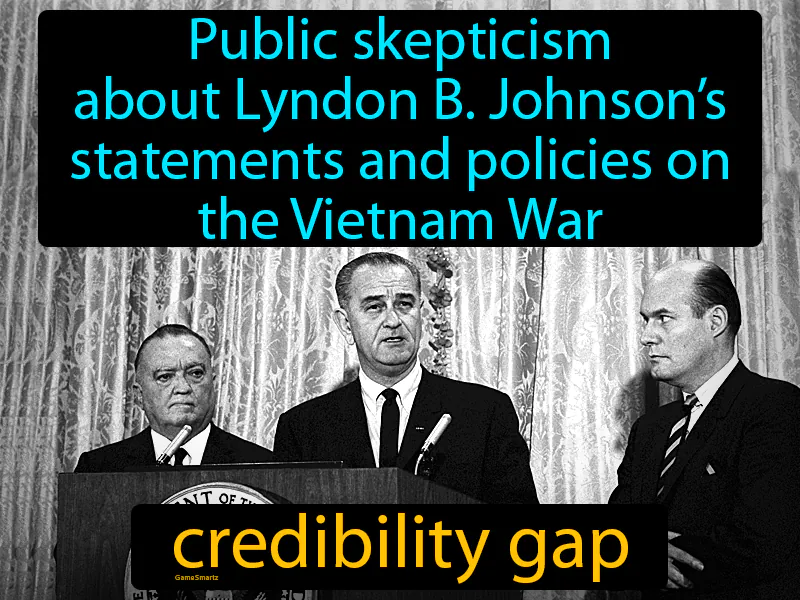Credibility Gap
Credibility Gap: Easy to understand
The "credibility gap" described the growing distrust between the American public and the government during the Vietnam War, especially under President Lyndon B. Johnson. As government reports often painted an overly optimistic picture of the war, news reports and returning soldiers shared a grimmer reality, leading people to doubt official statements. This skepticism was important because it eroded public support for the war and increased demands for transparency and accountability in government. Today, the concept is still relevant as people often question the truthfulness of information from authorities, whether it be about politics, health, or other issues. For example, during the COVID-19 pandemic, when conflicting information about vaccine safety emerged, many people experienced a credibility gap, affecting public trust and vaccination rates.

Practice Version

Credibility Gap: Public skepticism about Lyndon B Johnsons statements and policies on the Vietnam War. Credibility gap. The credibility gap refers to the difference between what the government says and what the public believes, often leading to distrust.